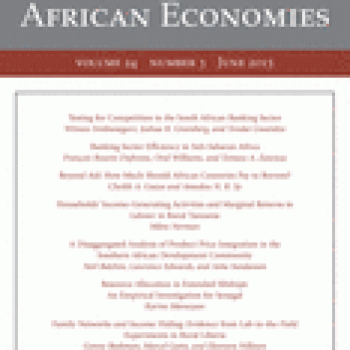Publication Information

This paper investigates whether the death of a parent during middle childhood (ages 7-8 to 11-12) has different effects on a child's schooling and psychosocial outcomes compared to death during adolescence (ages 11-12 to 14-15) in Ethiopia. The data comes from three rounds of the Young Lives longitudinal survey, conducted in 2002, 2006 and 2009, of a sample of around 850 children across 20 sentinel sites in Ethiopia. The results show that when a child's mother dies in middle childhood it has a significantly negative impact on school enrolment. A parent's death also has a significant negative impact on a child's sense of optimism about the future. These effects are short term in nature and do not persist into adolescence. However, the children orphaned in middle childhood engage in significantly more paid employment and self employment at age 14-15. In contrast to maternal death in middle childhood, maternal death in adolescence has no impacts on any of the outcomes considered in our sample. However, the death of a father in adolescence has a significant negative impact on school enrolment, maths scores and a child's sense of agency. It is unclear as to why this is the case, as these orphans do not seem to engage in more employment than others and there have been no significant disruption to caregiver arrangements. It is likely that the negative impact on enrolment and scores works though the lower sense of self efficacy or agency.
Keywords: orphans, shocks, Ethiopia, Young Lives
The final published version of the article is available on the journal website.

This paper investigates whether the death of a parent during middle childhood (ages 7-8 to 11-12) has different effects on a child's schooling and psychosocial outcomes compared to death during adolescence (ages 11-12 to 14-15) in Ethiopia. The data comes from three rounds of the Young Lives longitudinal survey, conducted in 2002, 2006 and 2009, of a sample of around 850 children across 20 sentinel sites in Ethiopia. The results show that when a child's mother dies in middle childhood it has a significantly negative impact on school enrolment. A parent's death also has a significant negative impact on a child's sense of optimism about the future. These effects are short term in nature and do not persist into adolescence. However, the children orphaned in middle childhood engage in significantly more paid employment and self employment at age 14-15. In contrast to maternal death in middle childhood, maternal death in adolescence has no impacts on any of the outcomes considered in our sample. However, the death of a father in adolescence has a significant negative impact on school enrolment, maths scores and a child's sense of agency. It is unclear as to why this is the case, as these orphans do not seem to engage in more employment than others and there have been no significant disruption to caregiver arrangements. It is likely that the negative impact on enrolment and scores works though the lower sense of self efficacy or agency.
Keywords: orphans, shocks, Ethiopia, Young Lives
The final published version of the article is available on the journal website.

